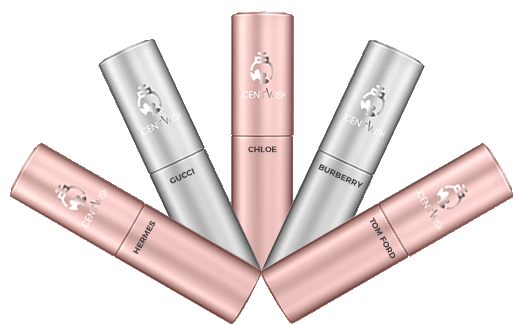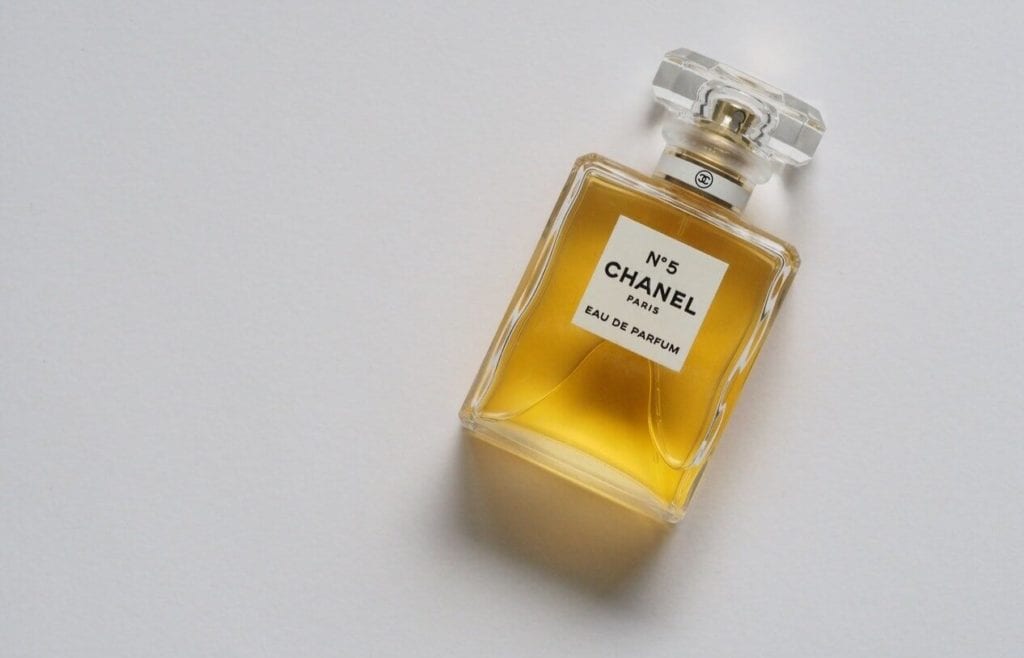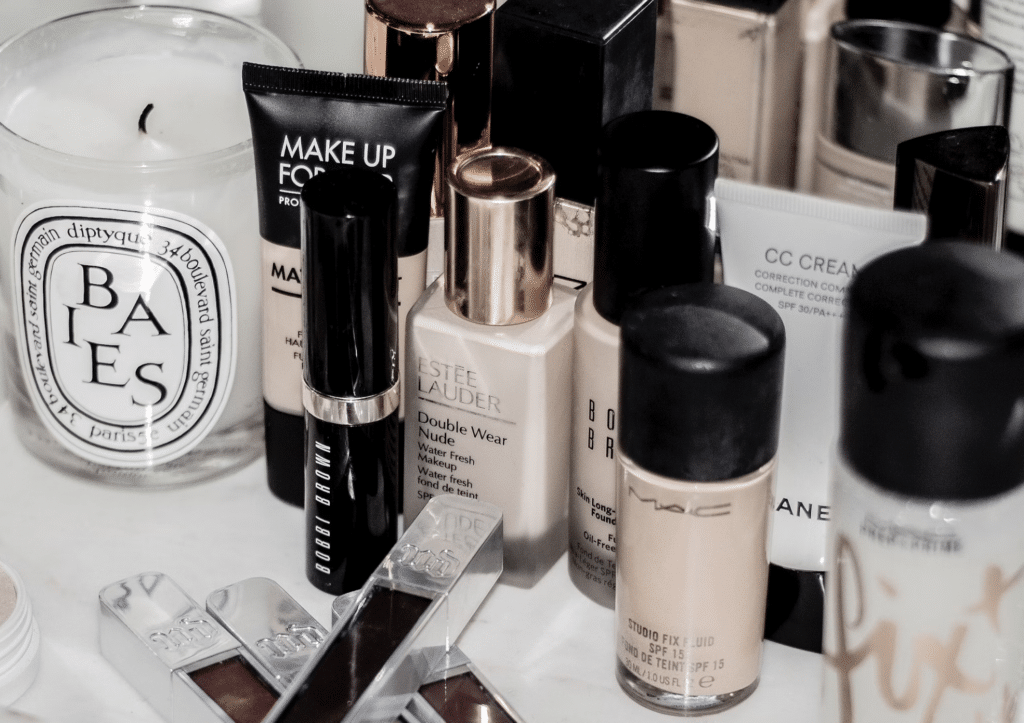Many consumers, particularly of the millennial and Gen-Z kind, are proving to be less likely to adopt a single “signature” scent that they will wear for years, and instead, are opting for an array of different perfumes to meet their mood(s), to wear in certain situations, and/or to coincide with the different seasons. This burgeoning trend in the fragrance market has given rise to a business opportunity for brands, such as Scentwish, which has made its name by offering month-long doses of perfumes to fickle fragrance customers.
Tel Aviv-based Scentwish’s business works a little something like this: the company purchases authentic bottles of perfume from more than 100 “top designers” (like Chanel, Burberry, Hermes, Cartier, Gucci, Prada, Versace, and Givenchy, among others), and rebottles them into smaller containers meant to last for about a month. For $223 per year, its subscribers can pick a scent that they want each month, and Scentwish ships to right their door in an 8 milliliter container, the perfect size for “carrying and flying,” the company says, and a way of buying perfume that does not require shelling out on a “large and expensive perfume bottle.”
With such a model in mind, Scentwish – which fits neatly within the larger (and still growing) $15 billion subscription market, precisely where companies like BirchBox built big beauty businesses – appears to fill the void plaguing young fragrance-wearers and their ever-changing tastes. And the capacity for smashing success is not without some backing. The strikingly similar but unrelated company Scentbird, which enables its subscribers to choose from a catalog of 500-plus designer fragrances for just under $15 per month, raised $18.6 million from the likes of Y Combinator and Soma Capita in Series A funding last year, a nod to the market potential at play.
Despite the obvious upsides to this subscription-scent model, there is one glaring downside, at least for Scentwish: litigation. Given that Scentwish’s business centers on its use of the fragrances of others and their intellectual property (namely, trademark-protected names and logos), as well, one brand has called foul … the notoriously protective Chanel.
In a complaint filed with the Tel Aviv District Court, the nearly 5-year old Scentwish claimed that Chanel threatened to take legal action on trademark grounds, pointing to Scentwish’s allegedly unauthorized rebottling of Chanel’s fragrances, which the fashion brand claims are imported into Israel from other markets (making them parallel imports), and its use of Chanel’s name to promote its products, including on its website and the products, themselves.
As counsel for Chanel would ultimately tell the court, by tampering with its carefully-manufactured and packaged fragrances, Scentwish risks damaging the perfumes’ composition, and passing sub-par quality products onto consumers under the Chanel name, thereby, potentially causing significant harm to Chanel’s wildly valuable brand. Chanel also argued that by swapping its distinctive Chanel-branded perfume packaging and bottles for generic ones, Scentwish stands to diminish the goodwill associated with the Chanel brand in the eyes of consumers.
On the heels of Chanel’s threat of litigation, Scentwish – which was founded in 2015 by lawyer-turned-entrepreneur Tal Birnboim – filed suit, asking the court to declare that it is not running afoul of Chanel’s trademark rights, despite the fashion brand’s claims to the contrary. In an attempt to bolster its argument against consumer confusion, which is at the heart of a trademark infringement claim, Scentwish asserted in its complaint that it includes disclaimer language on its website and its products, explicitly stating that it “merely repackages original perfumes, [and] is not related to the manufacturer of [the] perfumes in any way.”
The fragrance company also claimed that it should be shielded from liability because its use of Chanel’s trademarks amounts to fair use and that utilization of the Chanel name in connection with its sale of the fragrances falls under the exhaustion/first sale doctrine, a legal concept that holds that once a trademark owner, such as Chanel, releases its goods into the market, it cannot prevent the subsequent re-sale of those goods by their purchasers.
 image: Scentwish
image: Scentwish
In a decision this fall, the Tel Aviv District Court sided with Scentwish.
Considering Scentwish’s first sale argument, the court stated that it was not persuasive, as Scentwish’s business consists of more than merely reselling products that it purchased, and includes the modification and marketing of those products.
As for its fair use argument, in furtherance of which the startup claimed that it only uses Chanel’s trademark-protected name to identify the Chanel scents it offers (which is generally considered to be non-infringing as long as such use does not give rise to a likelihood of confusion amongst consumers), the court held that its use of the Chanel’s trademarks is necessary to identify the goods it is selling. However, the court determined that even though such use is necessary, Scentwish must include its name on the fragrance cartridges (and not merely the name of the perfume-maker) in order to avoid confusion amongst consumers as to the source of the products.
With the foregoing in mind, the court held that Scentwish can continue to sell its small versions of Chanel fragrances and use the brand’s name in connection with those products without running afoul of the law, as long as it implements a few changes to the disclaimer that appears on its fragrance containers and website. To be exact, the court says that Scentwish must swap out the word “repackages” in favor of “rebottles,” as the latter term more accurately represents its acts. More than that, the judge has “required” Scentwish to explicitly state in such disclaimers that it Chanel “is not affiliated with Scentwish,” whose activity is completely independent of the Paris-based brand.
The case is the latest in a string of efforts by Chanel to police unauthorized uses of its valuable trademarks, including by resellers. The 110-year old fashion house notoriously rather filed lawsuits against The RealReal and What Goes Around Comes Around, arguing that the resale business model relies heavily on the leveraging of the appeal and esteem of the world’s most famous luxury brands and their intellectual property, including brands’ trademark-protected names and logos, which fashion’s most established brands have spent over a century and hundreds-of-millions (if not billions) of dollars in marketing costs and legal fees to establish and maintain. Those cases are still underway in federal courts in the U.S.
Chanel’s efforts have coincided with those by other entities, such as beauty giant Coty, which have looked to courts across the globe in an effort to regain control over the market for their products in light of the rise of both resale companies and online marketplace platforms, alike.
The decision in the case at hand marks “yet another link in the chain of judgements rendered by Israeli courts in recent years encouraging competition,” according to Avi Ordo and Moran Katz of Tel Aviv-based firm S. Horowitz & Co., one that they say comes “at the cost of limiting the monopoly afforded to the trademark owner.”













